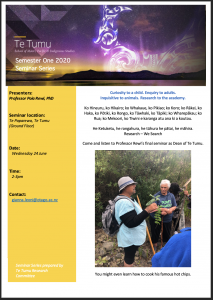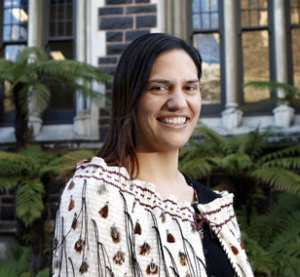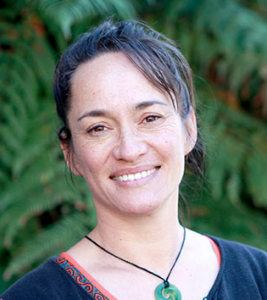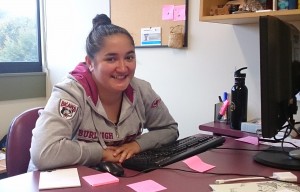Poia’s last seminar as Dean of Te Tumu
Professor Poia Rewi will be giving his last ever seminar to Te Tumu as Dean of our School. Poia has been an inspiring leader of Te Tumu and, as most of you know, we are very sad that he will soon be leaving the university for greener pastures elsewhere.
It would be wonderful if you are able to come along to the seminar; if not, then his talk will also be live-streamed on Te Tumu’s Facebook page.
Poia Rewi (Ngāti Manawa, Tūhoe, Te Arawa, Ngāti Whare and Tūwharetoa) hails from Murupara in the Bay of Plenty. He migrated south from Waikato University to Te Tumu, the University of Otago’s School of Māori, Pacific and Indigenous Studies in 2003 to help boost our Māori-language teaching programme. He is an acknowledged master of te reo Māori, always teaching the advanced-level language classes. A noted composer in his own right, he also taught Te Tumu’s advanced kapa haka classes. Poia completed his PhD in 2005, written completely in te reo Māori.
He has always been popular with students as a teacher and supervisor, as willing to feed their bellies with his soups as their minds with his knowledge. He became the Dean of Te Tumu and full professor in 2016.
Poia is also a serious and respected researcher, with publications on te reo Māori, language revitalisation, tikanga Māori, Māori oratory and Māori history. Indeed his thesis, published in 2010 as Whaikōrero: The World of Māori Oratory by Auckland University Press, went on to win the Best First Book Non-Fiction Award in the 2011 New Zealand Book Awards.
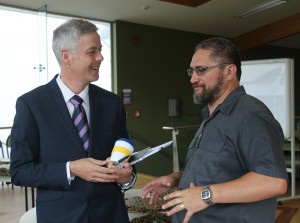
Professor Poia Rewi with DVC (Research and Enterprise) Professor Richard Blaikie at the launch of AKI.
Poia has always been a great innovator and collaborator. He helped develop AKI, an app to help learn Māori vocabulary with other Otago academics. He is also part of the team that came up with ZePA (Zero Passive Active), a model to advance the public’s attitudes and engagement with te reo Māori, and to promote Māori-language revitalisation, that is now used by a number of government agencies. Recently, Poia has worked with academics at Victoria and Auckland as a Co-Principal Investigator of Te Pae Tawhiti: Te Reo Māori, funded by Ngā Pae o te Māramatanga, looking at the value of te reo Māori in terms of the economy, cultural identity and social cohesion. This led to The Value of the Māori language: Te Hua o te Reo Māori, published by Huia in 2014, that won the Te Reo Māori category of Ngā Kupu Ora Aotearoa Māori Book Awards in 2015. Poia is currently Deputy Director of Ngā Pae o te Māramatanga, a position he will reluctantly have to leave behind for his new role in Wellington.
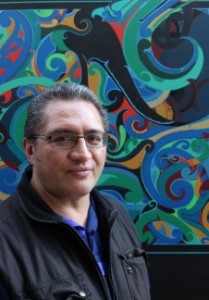 The revitalisation and advancement of te reo Māori have always been Poia’s passions. He was appointed to the board of Te Taura Whiri i te Reo Māori (Māori Language Commission) in 2012, and in 2014 was seconded from the university to be their acting Chief Executive. Poia’s new role, starting next month, is also in a similar field, as Tumu Whakarae (Chief Executive) of Te Mātāwai, a government agency created to assist hapū, iwi and communities in the important task of Māori-language revitalisation.
The revitalisation and advancement of te reo Māori have always been Poia’s passions. He was appointed to the board of Te Taura Whiri i te Reo Māori (Māori Language Commission) in 2012, and in 2014 was seconded from the university to be their acting Chief Executive. Poia’s new role, starting next month, is also in a similar field, as Tumu Whakarae (Chief Executive) of Te Mātāwai, a government agency created to assist hapū, iwi and communities in the important task of Māori-language revitalisation.
Our loss will be the community’s gain. Poia has been an amazing example for us in Te Tumu and the University of Otago, as a person who lives and breathes tikanga Māori, as an inspirational teacher, a leader in research, as well as a colleague and friend in the academy. We will surely miss him.
Te Tumu in this year’s Marsden Round
This has been a great year for research in Te Tumu. Every November Te Pūtea Rangahau a Marsden (Marsden Fund), run by the Royal Society Te Apārangi, announces its forthcoming research grants. Winning a grant is a two stage process, with applicants having to get past a preliminary round, then develop their applications for the second round; they have about a 10% chance of success in the Humanities and Social Sciences panels. There are six successful applications within the Division of Humanities, three of which have a Te Tumu connection.
Dr Karyn Paringatai‘s project “E kore au e ngaro! The enduring legacy of whakapapa” ($823,000, Social Sciences panel) looks at how the knowledge of whakapapa can impact on health, with particular reference to Māori affected by the CDH1 cancer-causing gene. Click here for more information. Professor Parry Guilford, Director of Otago’s Centre for Translational Cancer Research, is an associate investigator on the project.
Associate Professor Lachy Paterson is a principal investigator alongside Associate Professor Angela Wanhalla (History Department) on “Te Hau Kāinga: Histories and Legacies of the Māori Home Front, 1939-1945” ($746,000, Social Sciences panel), exploring the lived experiences of Māori who remained in New Zealand during the Second World War. Click here for more information. Although the project begins next year, one of our undergraduate students, Haeata Watson, has already started a project looking at Ngāti Kahungunu experiences, funded through a Ngā Pae o te Māramatanga Summer Internship.
Both Karyn and Lachy are based in Te Tumu’s Māori Studies programme, occasionally teaching into the Indigenous Development programme. Karyn also coordinates the Master of Indigenous Studies programme.
Professor Merata Kawharu, who until recently held an adjunct position within Te Tumu but is now based at the Centre for Sustainability, was also successful. Her project, “A question of identity: how connected are Māori youth to ancestral marae, and does it matter?” ($605,000, Humanities panel) will investigate the relationships that young Māori have with their marae. Click here to find out more. Merata with be working with associate investigators, Dr Stephen McTaggart (University of Auckland), former Dean of Te Tumu, Professor Paul Tapsell (now at the University of Melbourne) and Dr Krushil Watene (Massey University).
Special thanks to Marjoleine Righarts, Research and Enterprise’s Research Advisor for Humanities who helped immensely with all the applications.
Ngā Pae o te Māramatanga Summer Internships
Are you a Māori pre-doctoral student who is interested in advancing your skills and capacity in Indigenous research, and wanting some paid work over summer? Or do you know someone who may be interested? Ngā Pae o te Māramatanga have 27 Summer Internships on offer. Closes 10 October.
**** CLICK HERE TO FIND OUT MORE ****
Kei te piki tonu a Gianna! Further success for Gianna!
I te tau nei, ka whakapōtaetia a Gianna Leoni mō tāna tohu kairangi. I tēnei tau hoki, kua mahi ia hei kairangahau, hei pūkenga mō Te Tumu, engari, kua riro i a ia he tūranga hou, hei kairangahau postdoc i raro i a Ngā Pae o te Māramatanga. Ko tāna kaupapa rangahau, ko “Te Ōhanga o te Pīpīwharauroa – Expressing our Economic Aspirations”.
This year, Gianna Leoni graduated with her PhD. Also this year she has been working as a researcher and lecturer for Te Tumu, but she has gained a new position, that of a Ngā Pae o te Māramatanga postdoctoral fellow. Her research project is “Te Ōhanga o te Pīpīwharauroa – Expressing our Economic Aspirations”.
“The aim of this research is to enhance the contemporary Māori language of economic development that reflects a kaupapa Māori way of doing business. It will include historical research of language use regarding economic activity and an examination of current language use in economic activities, [including case studies] with the main objective of reintroducing and/or developing appropriate language that expresses economic activity.
“This research will allow for kaupapa Māori values to be included in Māori businesses using vocabulary that has a whakaaro Māori, not just transliterations, and that encompasses the philosophy of trading in a Māori way. In order to truly align with kaupapa Māori values, and to get buy-in from the community, economic activity needs the opportunity to be expressed in te reo Māori in all areas (eg. Finance) that are relevant to the stakeholders.
“This research will also contribute to the revitalisation and maintenance of te reo Māori and is extremely significant as Māori reach the ‘post-settlement’ era of Treaty of Waitangi negotiations where there is an increasing amount of economic engagement by Māori organisations.
“This research project links to the theme Whai Rawa. It aims to contribute towards developing tools, theories and models that will add value and profitability to diverse Māori enterprises, businesses & communities. It will contribute to creating new understandings and approaches for effective governance of these entities.
“This project will also link to a previously established Whai Rawa project, The intergenerational reality for Māori Small and Medium sized Enterprises (SME): Building resilience of Māori SMEs for the future. The exploration of Māori language as an expression of economic aspiration establishes a critical bridge to understanding the intergenerational reality of Māori SMEs today, and in the future”
Ka pai, Gianna!
He Pūtea Rangahau – Māori Research funding opportunities
News on two upcoming Māori research funding opportunities
From Ngā Pae o te Māramatanga
We will be commissioning new research around “Optimising Maori Economic performance”. What we would like you to do is be very creative when looking at the RFP and see how you can wrap it within your own discipline. We have funding for four projects so it is competitive. However, in these times we are pleased to offer this investment and look forward to your applications.
From the Website:
“NPM seeks to invest in research projects focussing on its research priocrity ‘Optimising Māori Economic Performance’ that aligns to its research direction. The total maximum budget available per project is $150,000 (fully costed, exclusive of GST, over 12 months). Funding is available for a 1 December 2014 commencement date.
NPM is seeking applications from individuals or groups within its PRE Network interested in undertaking research within the scope of the RFP. Applications should provide a concise summary of the research project including:
Up to two pages outlining the proposed research (goals and objectives, methods, details of the significance and/or relevance of the research); Excellence, Benefits and Transformations; An outline of the relevant collaborative arrangements; A dissemination plan; Biographical sketches; and Budget details.
The applications details are short but must contain in the proposal a specific research question and methodology. Applicants should have identified a research team and the study design and methods the team propose to use. Applicants should have secured access to information (or have clearly identified the pathways for access) and demonstrated mechanisms for engagement of key stakeholders, including the express support of Māori communities or other relevant parties where required. The research outlined in the application is expected to be feasible with a 12 month time frame and with a corresponding budget.
Click here for contact details.
From Te Taura Whiri i te Reo Māori (Māori Language Commission)
He pānui tōmua tēnei e pā ana ki ngā ratonga rangahau (whakaurunga kaipupuri pānga) e hiahiatia ana e Te Taura Whiri i te Reo Māori, e He Puna Whakarauora ā, ko tāna Rārangi Take Rangahau ā-Motu te kaupapa.
Ka puta tētahi Tono Marohi ki runga i a GETS i te marama o Mahuru. Ko te tikanga, hei whakamōhiotanga tōmua tēnei tuhinga i ō mātou hiahia tērā pea ka whakatakotoria, te angawā me ngā here ā-mua hoki e whai wāhi ai ngā kaiwhakarato torohū ki te whakaaroaro mehemea ka pīrangi rātou ki te tāpae i tētahi tono.
Mā te Pānui Tōmua, tēnā e ai tō aro ki te pae ipurangi.
This is an advance notice of research services (stakeholder engagement) required by Te Taura Whiri i te Reo Māori, He Puna Whakarauora, in relation to its National Research Agenda.
A Request for Proposal will be advertised on GETS in September. This is only intended to provide some advance notice of our likely requirements, timeframe and preconditions to enable potential suppliers to consider in advance whether they wish to submit a proposal.
For the full notice please refer to the Government Electronic Tender Service website
GETS RFx Id: 3432637, Whakaurunga Kaipupuri Pānga Reo Māori, Māori Language Stakeholder Engagement

